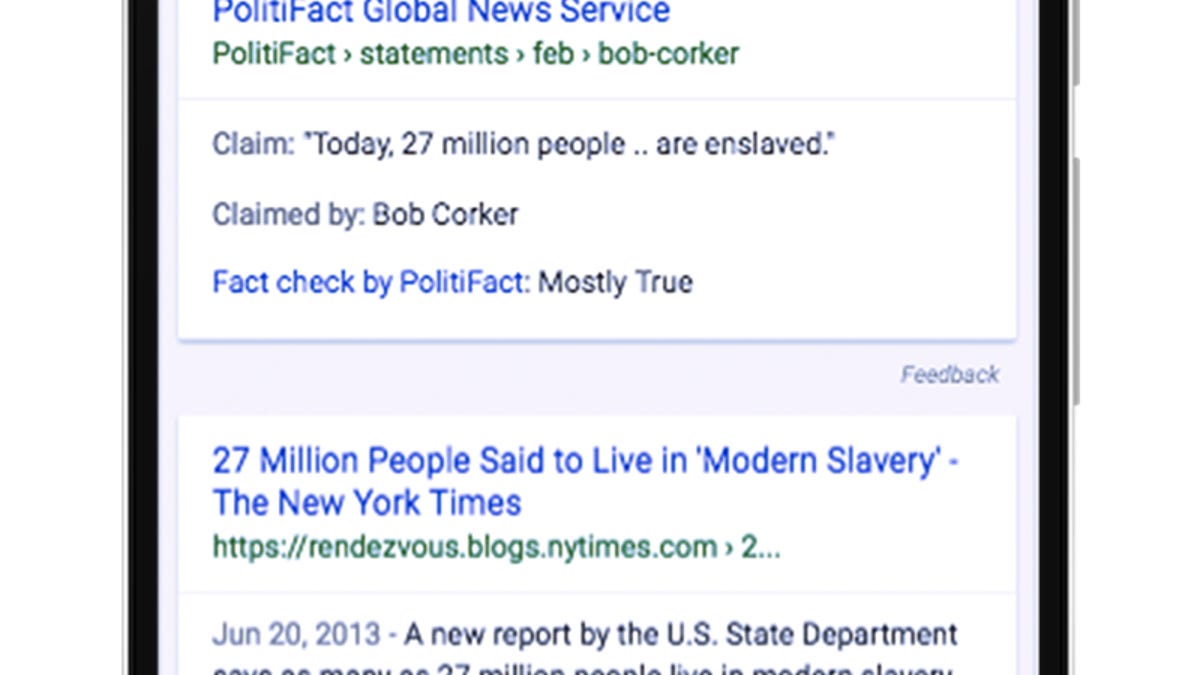Google fights fake news in search with 'fact check' tags
The search giant is expanding use of the feature, which it launched for Google News last year.

Google is adding a fact check tag to some search results.
Google is bringing tools to fight fake news to its most important and iconic product: search.
The tech giant said Friday that it's adding "fact check" labels to some of the results in its search engine. If you search for something and a story from a credible fact-checking source like PolitiFact or Snopes comes up, it will get that label.
For those stories, the search result will show a snippet that says what the claim is about, who made the claim and who fact-checked it. For example, if you type in a stat like, "27 million people enslaved," Google will bring up a PolitiFact story with a judgment that says the claim is "mostly true."
In October, the search giant introduced the fact check label for Google News in a few countries. But now Google is expanding use of the tag to search, as well as Google News in every other country where it's available.
The spread of misinformation has been a high-profile problem for the world's biggest tech companies. After Donald Trump was elected president in November, some of his detractors argued that misinformation on Facebook helped him win. Facebook has since tried to curb fake news by adding fact check labels of its own. Both Facebook and Google also amended their advertising policies to try to make sure fake news stories don't make money.
Tech companies are under more pressure than ever to regulate the content on their sites. Google-owned YouTube has been mired in controversy -- and the target of boycotts -- over ads being placed alongside hateful content. On Wednesday, the German government approved a plan that would punish sites like Facebook or Twitter with fines of up to 50 million euros, or $53 million, if they fail to remove hateful postings quickly.
As for the fact check labels on Google's search results, the company said there may not be just one definitive answer for each claim. Sometimes fact-checkers from different organizations might reach different conclusions.
"Even though differing conclusions may be presented, we think it's still helpful for people to understand the degree of consensus around a particular claim and have clear information on which sources agree," Justin Kosslyn, product manager for Google sister company Jigsaw, and Cong Yu, a research scientist at Google Research, wrote in a blog post.
"As we make fact checks more visible in Search results," they wrote, "we believe people will have an easier time reviewing and assessing these fact checks, and making their own informed opinions."
Tech Enabled: CNET chronicles tech's role in providing new kinds of accessibility. Check it out here.
Life, disrupted: In Europe, millions of refugees are still searching for a safe place to settle. Tech should be part of the solution. But is it? CNET investigates.

